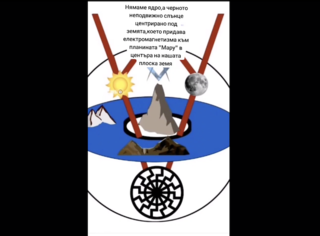
Is it true that global warming caused by human activity is a hoax because high-temperature records have been known in Bulgaria since 1916? No, that's not true: Historically, there have been extremely high temperatures in Bulgaria (in 1916, 2000, 2007), but usually they lasted for only a day or so, followed by cold spells when temperatures dropped, even below average. However, what's unusual now is that current temperature extremes last much longer says the climatologist Simeon Matev. The accuracy of the Bulgarian summer temperature record of 45.2 degrees in Sadovo in 1916, has been disputed as a possible "instrumental error" according to climatologists. It is also true that global warming caused by human activity has led to an increase in extreme weather events and a temperature rise of 0.2 °C per decade.
The claim appeared in a TikTok video (archived here) published on July 19, 2023, with the following caption and comments in Bulgarian:
About the heat and the lies
The official summer temperature record of 45.2°C in Bulgaria was registered in 1916. Again in 1916, but on different dates, extreme high temperatures were recorded not only in Sadovo, but in Boychinovtsi , 44°C, and in Gorna Oryahovitsa ,43°C. So, the summer of 1916 was extremely hot. More recently, on July 5, 2000, 45°C was recorded in Plovdiv. Extremely high temperatures were measured in the city of Sandanski, 44.6°C, in Ruse, 44°C, in Gorna Oryahovitsa, 43°C. So what human activity raised the temperatures back then? Do you still believe in lies? Peter Evtimov 2023
This is what the post looked like on TikTok at the time of writing:
(Source: TikTok screenshot taken on Thu Jul 27 20:39:16 2023 UTC)
Bulgaria has experienced high temperatures in its history, but it is misleading to say that human activities do not contribute to climate change and global warming. One of the hottest days in Bulgaria was on July 5, 1916, when the temperature reached 45.2°C in Sadovo, a town known for its hot and dry summers. However, climatologists query the reliability of the Sadovo temperature record from 1916. According to Professor Georgi Rachev, the technology in 1916 was not very advanced and measurements were not accurate. Officially, the highest temperature in Bulgaria was 45°C, measured in 2020 in Plovdiv. Projected trends show that temperatures in Bulgaria will continue to increase. Under a high-emission scenario, monthly temperatures are expected to increase by 2.2°C in the 2050s, and 4.4°C by the 2090s.
The scientific consensus is that global warming is caused by human activities. Certain heat-trapping gases, such as carbon dioxide, are warming the world and we release those gases when we burn fossil fuels like coal, oil, and gas. Multiple studies have shown that at least 97 percent of scientists agree that global warming is happening and that human activity is the primary cause. According to NASA, scientific evidence continues to show that human activities (primarily the burning of fossil fuels) have warmed Earth's surface and its ocean basins, which in turn have continued to impact Earth's climate.
The IPCC Climate Change 2023 report shows that human activities have unequivocally caused global warming and its widespread consequences for nature and people. It highlights the urgent need for rapid and deep reductions in greenhouse gas emissions, as well as enhanced adaptation and resilience to limit warming and avoid irreversible changes. The key findings from this report show the following:
- The average temperature of the Earth's surface has risen by 1.09 C in the last decade, compared to the baseline period of 1850 to 1900. This is the highest increase ever recorded, and the last five years have been the hottest ones.
- The changing climate also affects the frequency and intensity of extreme weather events, such as heat waves and cold spells. Since the middle of the 20th century, heat waves have become more common and longer, while cold snaps have become less frequent and shorter.
- Another consequence of global warming is the rising sea level, which is caused by the melting of glaciers and ice sheets, and the thermal expansion of seawater. By the end of this century, it is projected that sea level rise will cause high-tide flooding events, which used to occur once every hundred years, to happen every year in many places.
- Global warming also affects the chemistry of the oceans, which absorb about a quarter of the CO2 emitted by human activities. This causes the oceans to become more acidic, which harms marine life, especially corals and shellfish. Ocean acidification will persist for a long time, even if the CO2 emissions are reduced or stopped.
Additional Lead Stories fact checks of claims related to global warming can be found here.

















